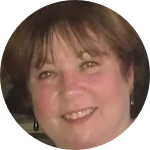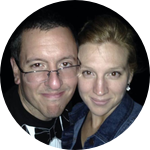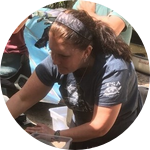About This Project
This project proposes the first study of its kind to track movement/migration patterns of freshwater turtles within the Florida springs, using the Florida Peninsula Cooter and Florida Red-belly Turtle at Wekiwa Springs State Park. The objective of my study is to determine migratory patterns and habitat use/requirements of the turtle populations. We will capture and tag 48 turtles in July, follow them for one year and publish and share the discovered migratory patterns.
Ask the Scientists
Join The DiscussionWhat is the context of this research?
The Florida Peninsula Cooter and the Florida Red-belly Turtle are seemingly common species found in Florida freshwater environments. However, little information is available about the habitat requirements and movement patterns of these turtle species. The Peninsula Cooter and the Florida Red-belly populations, among other turtle species, have been monitored at Wekiwa Springs State Park since 1999 by a group which began as an undergraduate research experience and is now the North American Freshwater Turtle Research Group, a part of the Turtle Survival Alliance (TSA). These population studies have spanned more than 18 years. Though the turtles have been monitored, the movement of these species has never been recorded quantitatively only observed qualitatively.
What is the significance of this project?
Turtles play an integral part in the ecosystem. However, life history traits of the turtle make it hard for turtles to rebound when faced with adversities such as habitat destruction/alterations, road mortality, decreased water quality or harvesting. With no information regarding the extent and range of movements for these species, there is no way to ensure protection for them as they migrate. This study will be the first of its kind to track the movements/migrations of these freshwater turtles for one year, thereby providing vital information to determine habitat requirements and specific critical habitats required to maintain these species. This information is crucial for managing wildlife areas and for those who set policy and regulations that affect both turtles and humans.
What are the goals of the project?
The goals of this study are to determine breeding/nesting areas, discover extent of movements, and assess the migratory nature of our observations.
In July, we will hand capture turtles and bring them to a central area for processing and tracking device mounting. We record sex, size and more quantitative measurements. We will tag 48 turtles with radio transmitters in a sampling group including both species (12 males and 12 females/species) using approved attachment methods. We can track the turtle movements using a Yagi antenna attached to a receiver. We will track the turtles for 12 months.
In addition to radio transmission, 4-8 turtles will be outfitted with satellite tags. Location points will be determined by GPS and data loaded into ArcGIS for migration pattern analysis.
Budget
The funds raised in this campaign are critical to gaining a comprehensive view of where these turtles go and how they are using their environment. The satellite tags will be used in conjunction with radio transmitters (received through a Disney Grant through the Turtle Survival Alliance - North American Freshwater Turtle Research Group) to give both broad scale and fine scale data. Our methods allow us to track turtles wherever they go and see how they are using their habitat. Information on how turtles use their environment help us conserve and protect the species. What we learn can also be applied to the conservation of other freshwater turtle species. The data and results are vital to the completion of my master's thesis. As the research progresses, I will post updates. I appreciate your interest in my research and am so grateful for your support!
Endorsed by
 Project Timeline
Project Timeline
This project will run for one year. I will be outfitting the turtles with radio transmitters and satellite tags starting the last week of July (2018). Then, every weekend from Aug 4, 2018 through July 28, 2019, I will be traversing over 30 miles of river tracking turtles. I will post updates throughout the year.
Jun 09, 2018
Project Launched
Jul 20, 2018
Start tagging turtles with radio and satellite transmitters
Jul 28, 2019
Project will end in one year. Removal of tags is dependent on continuation of project by another Graduate student.
Dec 01, 2019
Data compiled into thesis
Meet the Team
Tabitha Hootman
My interest originated when I was a little girl. My Papa would take me out to the woods and teach me about different animals. He taught me which snakes were venomous, the differences between a semi aquatic turtle and a tortoise and how to track different animals. He taught me that we depend on the animals and that we must respect and take care of them and their habitat. Although my Papa left me when I was 9 years old, his lessons and the passion he instilled in me have never faded.
This passion exploded in my Junior year of college. In 2005, I was involved in a Carolina diamondback nesting/predation study. It was during this study that I was introduced to a long-term semi aquatic turtle population study. I found myself surrounded by people with the same enthusiasm and passion for conservation. I have acquired over 1000 hours in the field working with this group. I am a Senior Member, the Lead Volunteer Coordinator and a Field Lead/ Processing Associate for the Turtle Survival Alliance-North American Freshwater Turtle Research Group. I train new volunteers on all aspects of collection/processing of turtles. I also serve in the capacity of public educator/interpreter and as a supervisor of students and other volunteers conducting research in the field.
I also volunteer for the North Florida Land Trust & the Florida State Parks, monitoring Diamondback terrapin nesting and survival in the Big Talbot Island State Park. I also assist with a statewide status assessment study of diamondback terrapins under the supervision of the Florida Fish and Wildlife Conservation Commission.
I decided to continue my education and research and am currently working on my Masters in Marine Science from Jacksonville University. My goal is to work in conservation with the ability to do field work and continued research.
Lab Notes
Nothing posted yet.
Project Backers
- 20Backers
- 100%Funded
- $2,800Total Donations
- $140.00Average Donation




